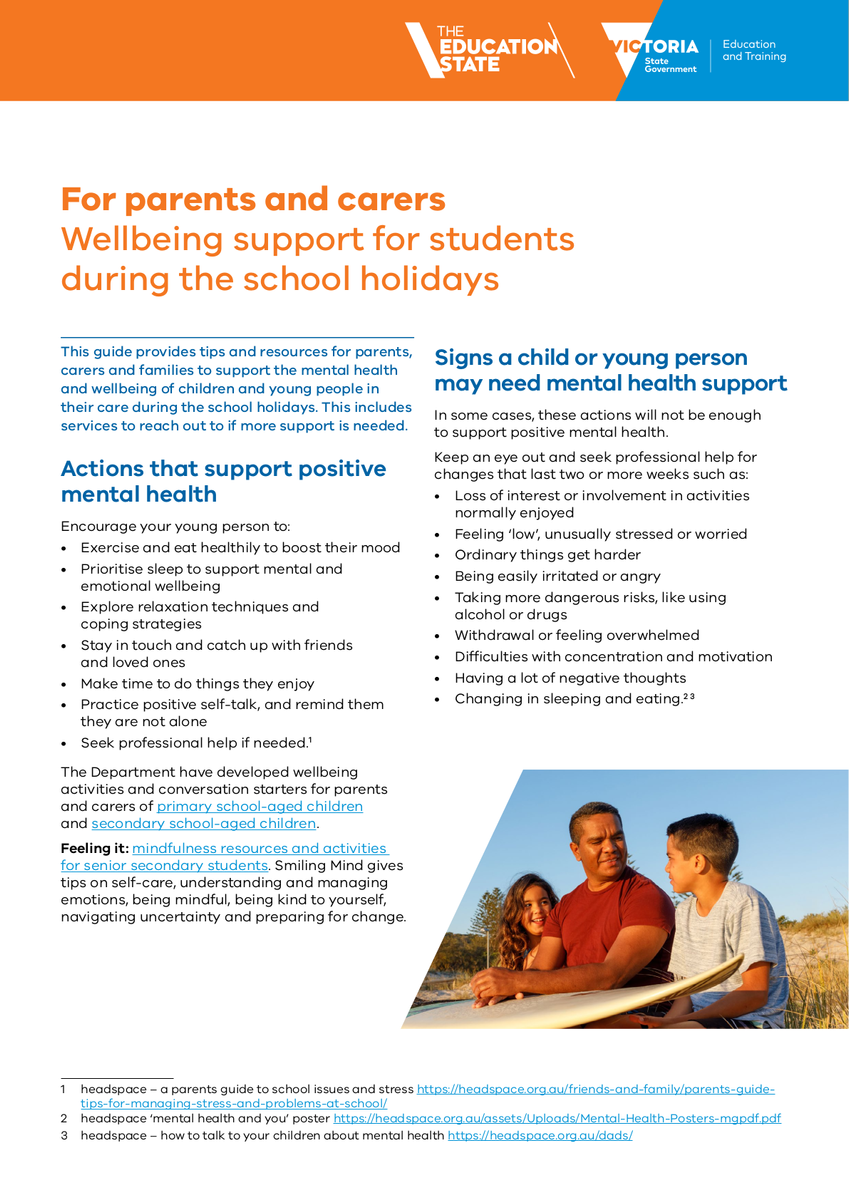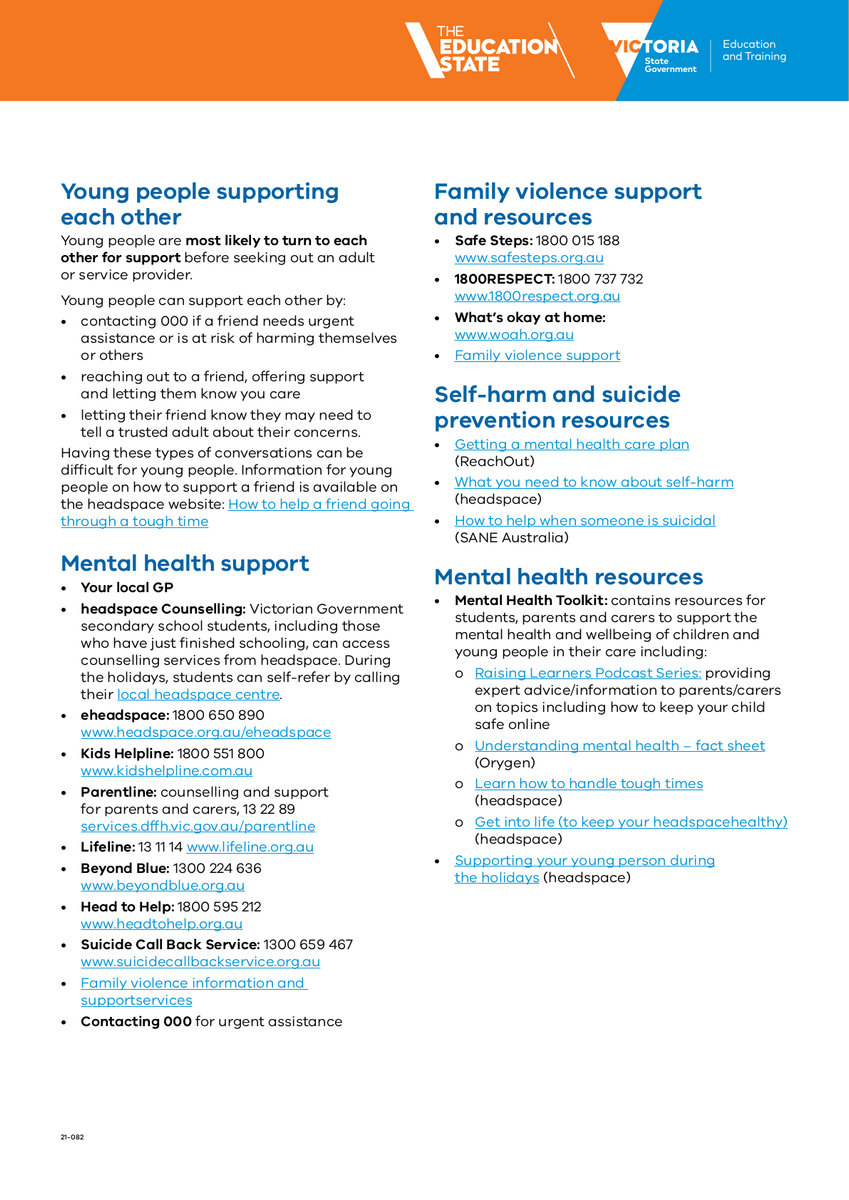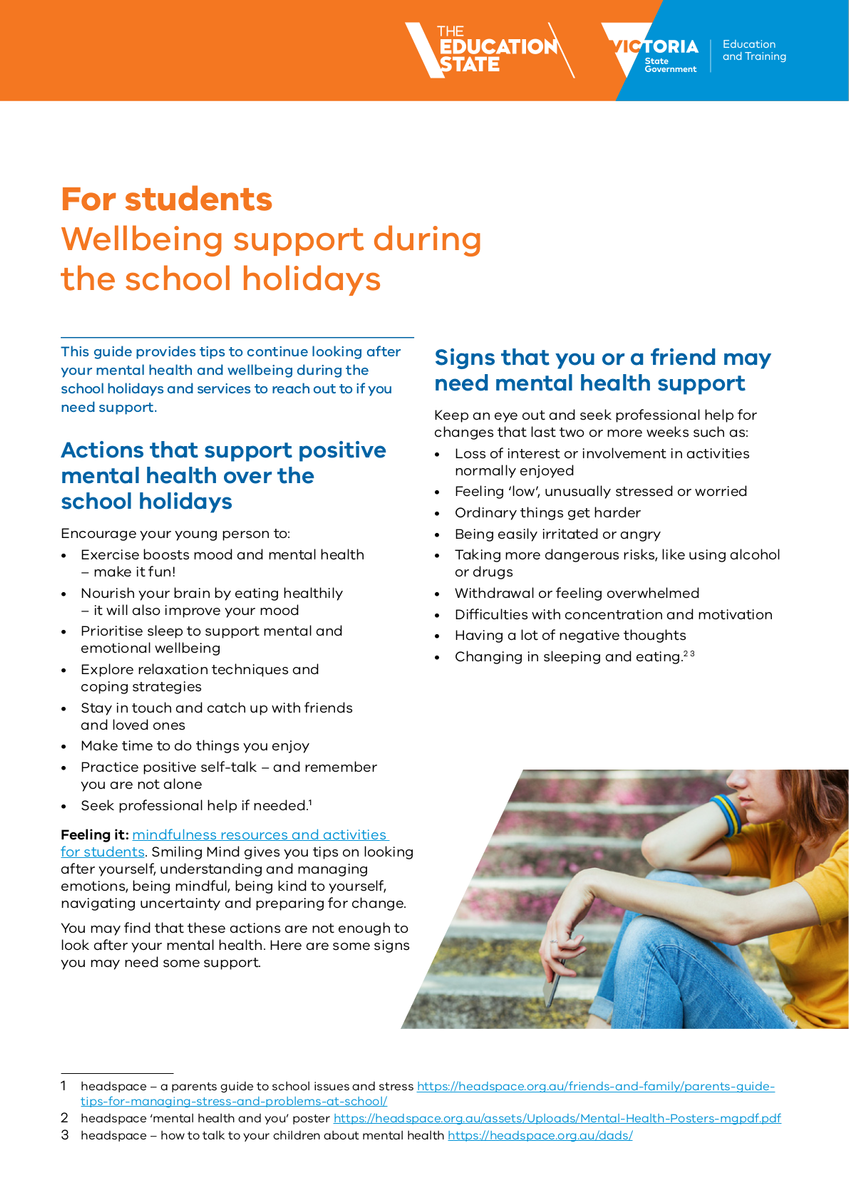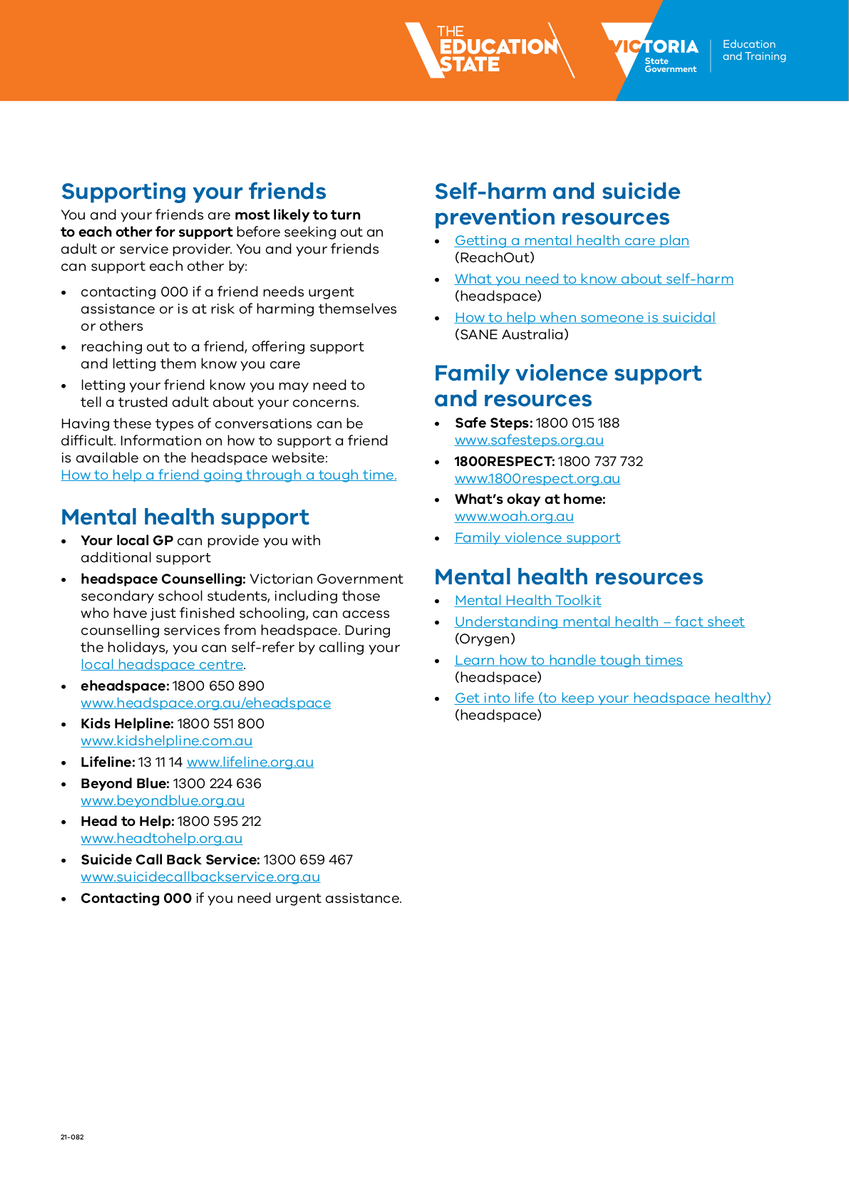Mental Health & Wellbeing Student/Parent Support
Articles, Videos & Resources
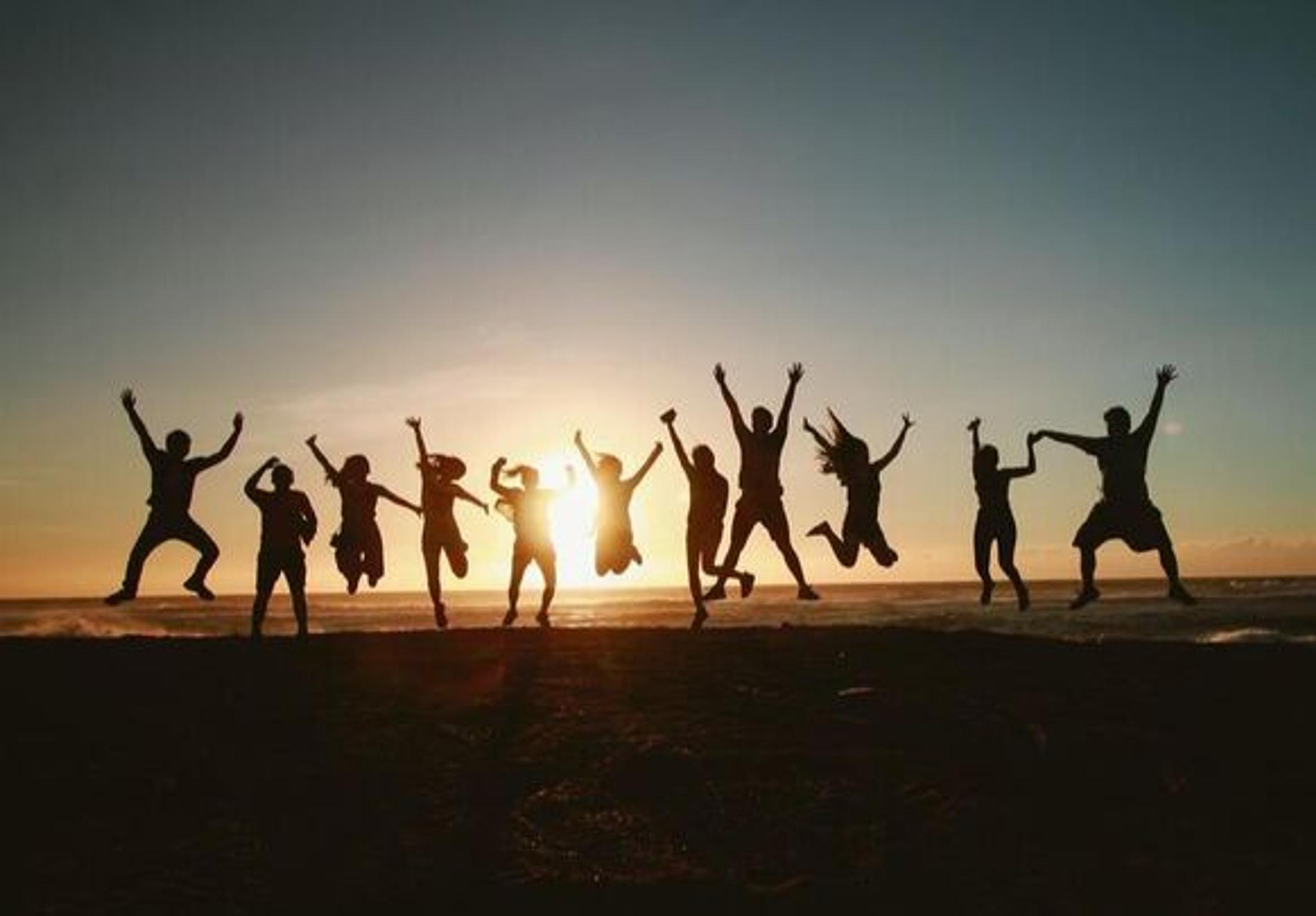
Mental Health & Wellbeing Student/Parent Support
Articles, Videos & Resources
It’s often easy to focus on the negative aspects of a child’s behaviour, and you may feel that at times your child's behaviour is out of control. Their behaviour at home is likely to improve through a combination of rewards and reinforcement for positive 'good' behaviours, and consequences for negative behaviours.
If you are wondering ‘What do you do in school holidays with no money?’ This article lists 11 things to do this winter that are all FREE! Who doesn’t love a free day out?! A cultural museum visit, a family walk and days at the park, these are some of the best things to do in Melbourne without spending a cent. Check out our list of great free family activities in Melbourne.
NGV - IAN POTTER CENTRE
The National Gallery of Victoria is a place for everyone and warmly welcomes children, teenagers and families. NGV Kids exhibitions and programs reflect the Gallery’s commitment to providing creative experiences for young people and their families. We love visiting when we are heading into the CBD. Located centrally in Federation Square, it is a must do over the holidays.
https://www.ngv.vic.gov.au/
ST KILDA PENGUINS
How incredibly lucky that as Melbourne locals we have penguins in our own city! Witness the wonder of a penguin colony at the beautiful St Kilda Breakwater during these school holidays. This self-guided experience allows you to watch these incredible creatures as they go about daily penguin life.
https://www.parks.vic.gov.au/places-to-see/parks/st-kilda-pier-and-breakwater/attractions/little-penguins
ROYAL PARK NATURE PLAY
3. Based on natural elements, this park is a wonderful outdoor space for children. With equipment to excite the kids – ropes course, climbing structures and more – as well as a water play area, there is something for kids of all ages. That is our kiddo in the photo above, this is one of his favourite playgrounds in Melbourne!
https://www.melbourne.vic.gov.au/community/parks-open-spaces/playgrounds/Pages/playgrounds.aspx
STATE LIBRARY OF VICTORIA
4. If you want to get the kids excited about visiting a library, remind them that the State Library of Victoria houses Ned Kelly’s armour! The library also has a range of talks, workshops and children’s story time on offer all year round.
You can always find something special for the kids in the Children’s Quarter of the library.
https://www.slv.vic.gov.au/
QUEEN VICTORIA MARKET
5. This open air market is a wonderland for the senses and one our family often visits. Yummy food and smells greet you as you enter this expansive outdoor market. This iconic market has been running for 140 years and is a must see these school holidays. Try on silly hats, sample some treats at the food stalls or buy some fresh food and take it home to cook up a storm with your kids. They will be learning about measuring, weighing and timing… but don’t tell them they are learning… ssshhh!
https://qvm.com.au/
RAAF MUSEUM
6. A visit to the RAAF Museum will ignite the passion for flying in your kids. See aircraft up close and learn about the history of the air force. Open days and flying displays are held throughout the year so make sure you add them to the list!
https://www.airforce.gov.au/community/visit-and-learn/raaf-museum
SHRINE OF REMEMBRANCE
7. The Shrine of Remembrance is a fantastic school holiday activity, explore the free museum and memorial, which showcases Australia’s rich military history. Visit during the Last Post Service. The brief, family-friendly ceremony takes place outside on the Shrine Forecourt and includes bugle calls and bagpipers, the Shrine Guard in historic uniform, a wreath-laying, recital of the Ode and lowering of the flags. Every Sunday.
https://www.shrine.org.au/
NATIONAL GALLERY OF VICTORIA
8. The National Gallery of Victoria has two locations and lots to offer kids these school holidays. The Gallery is committed to expanding the creativity of children with a range of programs, exhibits and activities all year round.
MELBOURNE MUSEUM (Fantastic Beasts on until October 8, 2023)
9. f you’re looking for a fun and educational activity to do with your kids over the school holidays, you can’t go wrong with a visit to the Melbourne Museum. Check out the Dinosaur Walk exhibition, where you can step back in time and come face-to-face with some of the most impressive prehistoric creatures to have ever roamed the earth. Another popular exhibit is the First Peoples exhibition, which delves into the rich cultural history of Australia’s Indigenous peoples. Through interactive displays and multimedia experiences, you and your kids can learn about the customs, traditions, and beliefs of these fascinating communities.
ART PLAY
10. ArtPlay is a venue that encourages creativity and self-expression. Workshops and programs are on offer for a range of age groups and it is centrally located in Melbourne City behind Federation Square. Allow some time to play at the playground located beside ArtPlay.
CITY CIRCLE TRAMS
11. Did you know? The trams that run in the inner CBD of Melbourne are 100% free?
Mental health support, resources and advice are available for students and families to access over the school holidays.
This fact sheet provides tips and resources for parents, carers and families of children and young people in their care over the school holidays. This includes services to reach out to if more support for them is needed.
